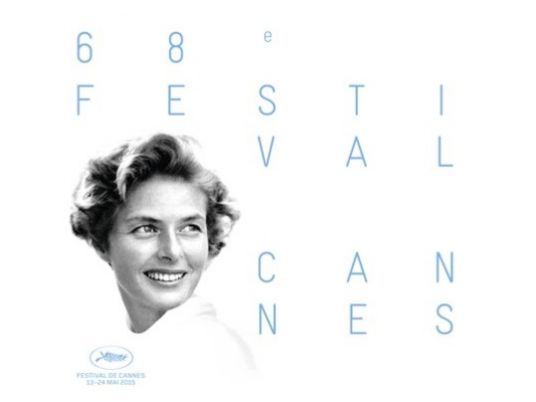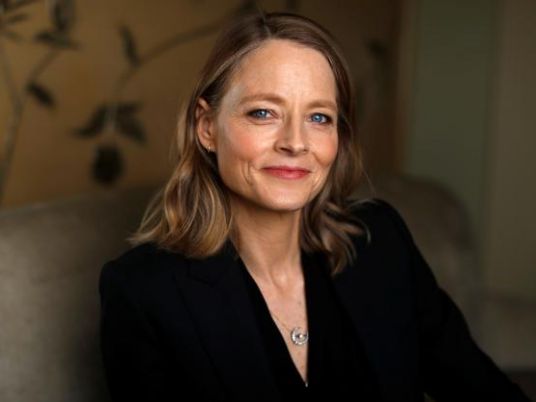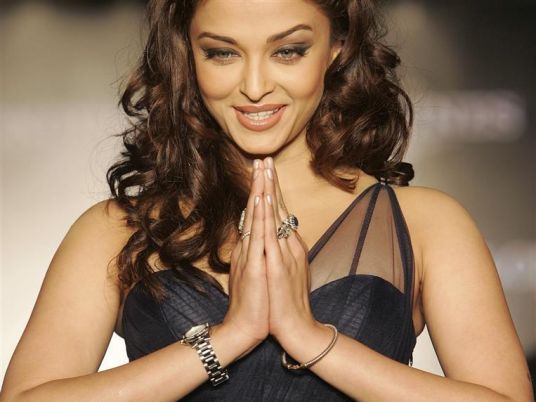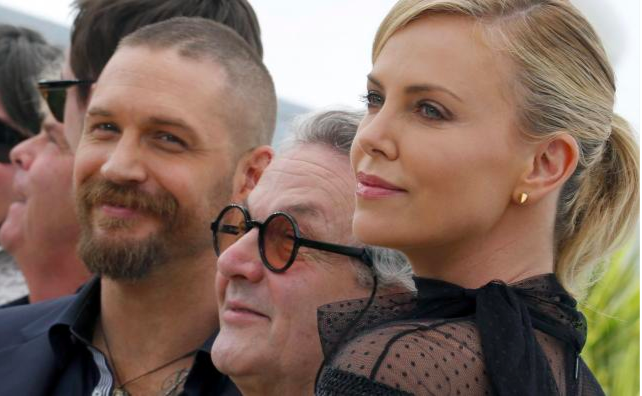
From an Italian movie extravaganza to a crackdown on selfies, FRANCE 24 lifts the curtain on the crucial – and trivial – things you need to know about the 68th Cannes Film Festival, which runs from May 13-24.
The British aren’t coming
UK commentators were swift to point out the dearth of British entries in the main competition, with just two productions (and no directors) arriving from across the Channel. One of them is "Macbeth" by Australian director Justin Kurzel, starring Michael Fassbender and the inevitable Marion Cotillard. And yet Shakespeare’s language is more dominant than ever, accounting for more than half of the 19 films in competition – including some by renowned European auteurs working in English for the very first time. Indeed, the Italian press has complained that two of the country’s three entries have forsaken Dante’s language.
Other converts to English include Norway’s Joachim Trier (“Louder than Bombs”), known for his absorbing “Oslo, August 31st”; Greece’s Yorgos Lanthimos ("The Lobster”), who became an art house favourite in 2009 with his bizarre and brilliant “Dogtooth"; and Mexico’s Michel Franco (“Chronic”), the only Latin American in the main line-up. Fortunately, the three Asian directors in competition – China’s Jia Zhangke ("Mountains May Depart"), Japan’s Hirokazu Kore-eda (“Our Little Sister”) and Taiwan’s Hou Hsiao-hsien ("The Assassin") – have all resisted the lure of English, thereby upholding the festival’s status as a sanctuary for foreign-language cinema.
French domination
Cannes commonly reserves around three competition slots for French films, and the presence this year of five entries from the home nation has raised a few eyebrows. Homegrown directors Valérie Donzelli (“Marguerite and Julien”), Stéphane Brizé (“The Measure of a Man”), Jacques Audiard (“Dheepan”), Maïwenn (“My King”) and Guillaume Nicloux (“Valley of Love”) will vie for the Palme d’Or, while Emmanuelle Bercot (“Standing Tall”) and Luc Jacquet (“Ice and Sky”) have been allotted the festival’s coveted opening and closing slots, respectively.

Well-known film critic Jean-Michel Frodon has described this abundance as “a symptom of the excessive proximity between the selection committee and the French film industry”. Festival director Thierry Frémaux has responded by suggesting the French offerings were simply of superior quality. “The real problem,” he told local weekly Télérama, “is the declining influence of Eastern Europe and part of Latin America, coupled with Hollywood’s inability to protect auteur cinema”.
Italian extravaganza
Over the years Italian directors have clinched Cannes’ Palme d'Or on nine occasions – the same as the host nation. They have a good chance of pulling ahead this year, with three entries in the main competition. The 2001 Palme d’Or winner Nanni Moretti is back with “My Mother”, a delicate and sentimental film about a filmmaker struggling to cope with a collapsing set and her mother’s fatal illness. A darling of the Coen brothers, John Turturro stars in a supporting role as a brash and boastful American actor whose hideous Italian and outrageous dance moves should give a comic edge to the family drama.
But pundits are more likely to put their money on the two other entries from Europe’s famed Boot. Two-time Grand Jury Prize winner Matteo Garrone presents “The Tale of Tales”, his first English-language effort, starring Vincent Cassel, John Reilly and Toby Jones. Loosely based on a 17th-century Neapolitan fairy tale collection, Garrone’s fantastically dark fable also features Mexican actress Salma Hayek devouring a monster’s heart with gusto. Oscar-winning director Paolo Sorrentino is also back, with a film about old people called “Youth” that boasts a star-studded cast including Michael Caine, Harvey Keitel and Jane Fonda.
Short & sweet
Over the years films have become painfully (and often needlessly) long, posing a challenge for critics tasked with watching and reviewing at least two a day. Those still aching from last year’s 196-minute Palme d’Or – Nuri Bilge Ceylan’s “Winter Sleep” – were hoping for shorter movies this year. It seems their pleas have been heeded, with the longest entry in competition clocking in at “just” 130 minutes. Mercifully, “Arabian Nights”, a three-part, six-hour-plus drama from Portuguese director Miguel Gomes has been slotted in at the Directors’ Fortnight – which means it is not mandatory viewing for anyone on a tight schedule.
No selfies, s’il vous plaît
There will be plenty of star power gracing the red carpet, with the likes of Natalie Portman, Cate Blanchett, Michael Fassbender and Matthew McConaughey expected on the Croisette, Cannes’ famed seaside promenade. But if Frémaux has it his way, none of them will be causing traffic jams with their “ridiculous and grotesque” selfies.
"We don't want to prohibit it, but we want to slow down the process of selfies on the steps," said the festival director, adding: “You never look as ugly as you do in a selfie."

It is not clear how festival organisers plan to enforce the unofficial ban on the popular self-portraits, which Cannes stars fervently embraced last year. But their endeavour has earned the prestigious endorsement of Catherine Deneuve, the grand dame of French cinema, who will grace the red carpet on Wednesday for her role in "Standing Tall". Making no secret of her contempt for selfies, Deneuve recently lamented the end of true glamour.
“A star is someone who should be seen a little and then remain discreet, reserved,” she told local newspaper Le Journal du dimanche. “We see a huge amount about people who are very famous, who have millions of followers … and who have done absolutely nothing.”
Catch them if you can
With France still on high alert after January's terrorist attacks in Paris, a huge but discreet security detail is planned for this year’s festival. Cannes is already the most densely monitored town in the country, with 468 CCTV cameras – one for every 152 residents. Some 500 police will patrol the streets, backed by four companies of reserve officers as well as a huge number of private security guards that accompany the stars. A tight maritime security net has been put in place, drones have been banned from the skies, and the main roads in and out of town are being closely watched.
But once again, the main headache for police is likely to come from good old-fashioned jewel heists, which seem to occur at every festival regardless of the beefed-up security. During the 2013 event, a lone robber stole diamond-encrusted necklaces and other jewellery worth more than €140 million from the illustrious Carlton Hotel, once the setting of the Hitchcock classic "To Catch a Thief". He has never been caught. And only last week, four men burst into a Cartier store on the Croisette and made off with booty worth more than €17 million. The brazen heist was apparently inspired by the 1973 film “Happy New Year” in which Lino Ventura plays a masked robber who raids a jeweler on the famed seaside promenade.
Martinez, there’s a party
It is no secret that scantily clad starlets, paparazzi and celebrity soirées play as big a role at Cannes as the movies. Throughout the festival, the seaside town, its fancy hotels and wide expanse of sandy beaches all morph into a giant party scene, mostly blasting out deliciously bad Eurotrash music. Coveted haunts include the Martinez's rooftop bar, the Villa Oxygène’s pool parties, and the David Lynch-designed Silencio pop-up club, housed in an old casino near the Palais des Festivals.

Film distributors organise some of the loudest events, none louder than last year’s outrageous after-party (complete with “viagra cocktails” and "dirty sex" kits) for Abel Ferrara’s “Welcome to New York”starring Gérard Depardieu as disgraced former IMF director Dominique Strauss-Kahn. Sadly for the average Joe, invites for Cannes’ glitzy festivities are often harder to find than the sex kits.



